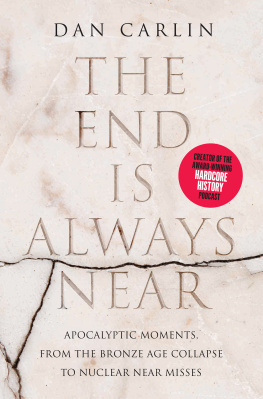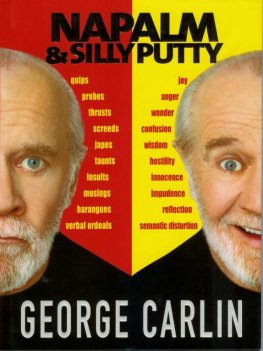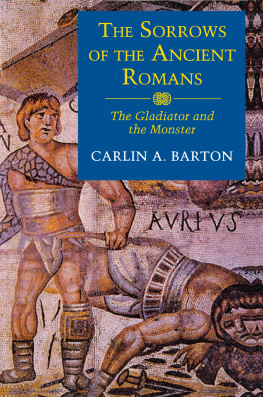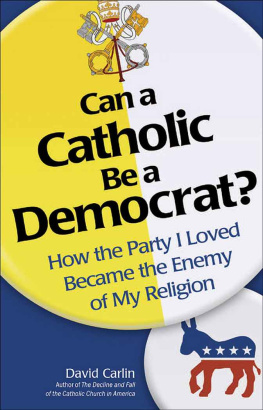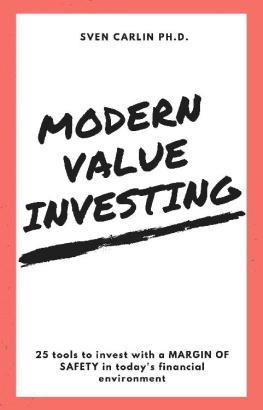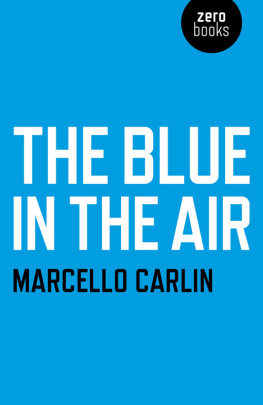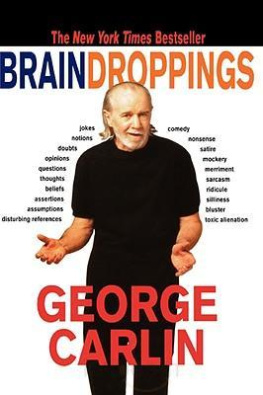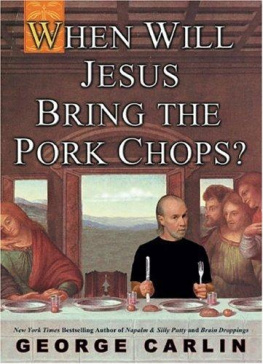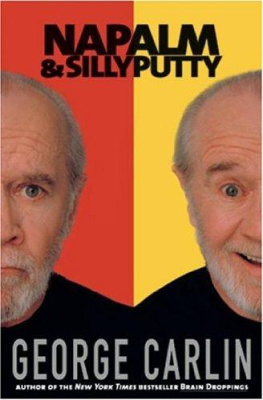Contents
To Brittany, Liv, and Avery
Do you think that modern civilization will ever fall and our cities will ever lie in ruins?
It sounds like an overused science fiction theme, with the archaeologists of the future carefully poking around the rusting skeletons of New York, London, or Tokyos skyscrapers, subways, or sewers; removing our dead from their graves and studying them like we do ancient Egyptian mummies; trying to decipher our language, unlock the code that is our writing, and figure out who we were. To imagine our tombs, buildings, and human remains being treated the way we today treat ancient archaeological finds might seem unimaginable, but theres a pretty good chance thats what the mummy being excavated thought about his time and place, too.
Theres no right answer to a question like that, of course. Many of the questions raised in this book fall into that same unanswerable class. Maybe thats part of what makes them intriguing.
Just noting past evidence and extrapolating it out to future events can get weird quickly. To imagine things that have happened many times in history repeating in the modern era is to dabble in science fiction. It is a very thin membrane that separates factual history from unprovable and speculative fantasy. The instant in which we all live is the point at which those two thingsthe hard chronology of recorded names and dates and the what-ifs and alternate realities of possible futuresintersect. To imagine the twenty-first-century world being hit with a great plague like the great disease pandemics of the past is fantasy, yet its also extremely possible and has happened many times before. Whats the connection between the factual past and the speculative future?
I am told that any conventional book should answer questions or should at least provide an argument. If thats true, this will not be a conventional book. Its more of a collection of loosely connected vignettes. I have no argument, which is consistent with the approach we take in the podcast as well. My approach is that of a nonexpert, for that is what I am. Historians, political scientists, geographers, physicists, sociologists, philosophers, authors, and intellectuals in general have all weighed in over the eras on all the sorts of issues we ponder in this book, each doing so using their own methods and viewing them through their own eras, specialties, and cultural lenses.
While a modern geographer might cite global historical analogies to make an argument about a civilization falling, or a physicist provide the math to determine the likely probability of a dark agecreating asteroid striking Earth, the approach of a storyteller or journalist is to look at the human angle. What sort of human stories are going on as a civilization collapses? A bombing raid destroys a persons city, or a pandemic begins to unravel the bonds holding a society together? Seeing things through that lens engages different parts of the brain, including emotions, and can often have an impact that the data, graphs, and research studies dont. Think of it as another tile in a vast mosaic as many disciplines try to restore an image of the past.
Do tough times make tougher people? Does how we raise our children have an impact on society at large? Can we handle the power of our weapons without destroying ourselves? Can human capabilities, knowledge, and technology regress? Theres a very Twilight Zone sort of element to such ideas, with subtle (and sometimes not so subtle) overtones that seem to speak to our present times. They are ideas that cross the boundaries of modern academic disciplines and tread into territory usually occupied by drama, literature, and the arts.
But even without agreed-upon answers, such questions are both fascinating and potentially valuable. Many of them are the types of proverbial deep questions that have always been at the heart of philosophical works. Simply thinking about them more often may have value. Others may offer some practical usefulness. Reminding us all, for example, of how many times similar occurrences have taken place in the past may help add a layer of believability to many future possible occurrences that seem more like far-fetched movie plots right now. A history professor once told me that there are two ways we learn: you can put your hand on the hot stove, or you can hear tales of people who already did that and how it turned out for them.
Hardcore History fans have long been asking about a book. I had so much existent material, research, and ideas in the archives that it just seemed natural to use them as the nucleus for such a work. Going back and sorting through it became something of a personal Rorschach test. When one considers all the reading and research that goes into these shows, its imperative that the subject be of great interest to me.
If a persons bookshelf is a window into their interests, apparently mine lean toward the apocalypticalthough it was a bit surprising just how often the shows eventually factored down to a related version of the same idea: the End of Civilization in one form or another and not just how we humans might react or respond to that based on past experience, but what kind of people these experiences might make us.
Can you blame me? The rise and falls of empires, the wars, the catastrophes, the high-stakes situationsthe Big Storiesare intense and dramatic by their very nature. The combination of material that is entertaining as well as (potentially) philosophical, educational, and practical is an age-old winning formula. Historians and storytellers from Homer and Herodotus to Edward Gibbon and Will Durant recognized that long before Ajax and Achilles were spearing their way dramatically and bloodily through The Iliad while making History. Theres a reason a guy like Shakespeare mined the past so often for his material.
But it isnt just about diversion or amusement. One is often moved to a form of historical empathy and personal reflection. These events happen to real flesh-and-blood human beings who were often relentlessly trapped in the gears of history. Its hard not to wonder how we would cope if we found ourselves in similar situations.
One of the things that I kept noticing when burrowing into the archives was a recurring, unanswerable either/or historical question. Will things keep happening as they always have, or wont they? It is an unbelievably intense and scary question in some circumstances. Some of those types of case studies, if you will, are discussed in this book.
Will we ever again have the type of pandemics that rapidly kill large percentages of the population? This was a feature of normal human existence until relatively recently, but seems almost like science fiction to imagine today.
There have always been large wars between the great powers. Any next such war would involve nuclear-armed states. World War III sounds like a bad movie concept, but is it any more unlikely than eternal peace between the great states?
Finally, as we asked earlier, can you imagine the city you currently live in as a desolate ruin? Will it one day be like most cities that have ever existed, or not? Either outcome seems fascinating.
While much of what follows is rather dark, looking at history has a way of putting our circumstances in better perspective. Hearing about what, for example, people dealt with as their cities were carpet-bombed or while enduring monstrous medieval plagues has a way of making your problems seem small. Premodern dentistry alone is enough to convince me things are pretty good now, no matter what.
And yet, despite all the differences between people over the ages, some events and eras seem, as Barbara Tuchman wrote, like looking into a distant mirror. Its hard not to wonder how we would cope in similar circumstances. My grandfather loved the phrase There, but for the grace of God, go I. Thanks to a bit of cosmic luck, we were born at the time we were, and in the place we were. It couldve easily been any other time and some other place. I find that recalling that makes having historical empathy somewhat easier.

